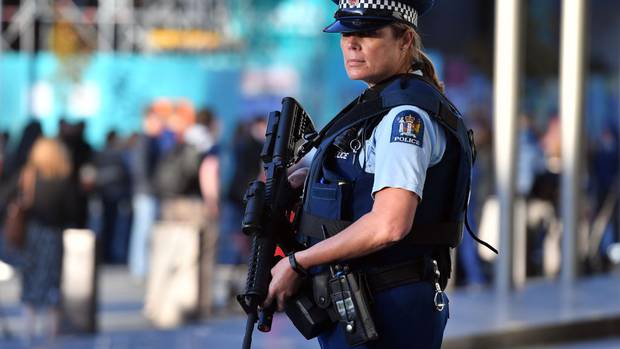Merely appeasement for FIANZ.
Police ‘watchlist’ has officers visiting those dobbed on tip lines and who post conspiracy theories online.

Police officers trying to stop another terror attack are visiting social media users who post conspiracy theories and people who unwittingly bought goods from websites with far right or white nationalist links.
Others winding up on the police “persons of interest” list have been dobbed in – sometimes maliciously or ignorantly – by members or the public.
The raids and visits follow each of the 12 police districts drawing up a “watch list” of individuals to keep an eye on following the terror attack in Christchurch.
The list was pulled together from various intelligence reports, social media posts, or tipoffs from people concerned about the behaviour of someone they knew.
The Herald has identified three people who have faced police visits after posting to social media views which would commonly be considered conspiracy theories, or views which voiced frustration over 1080 and immigration through to a belief attempts to curb hate speech is an infringement on free speech.
A Facebook user from Waiuku – a 49-year-old small business owner – said there was nothing on his social media feed which should have prompted a police visit. There had been one prior visit by police after unproved claims that he threatened family violence, which he denies.
He said he did not have a gun licence or firearms and there was no other behaviour which should prompt police attention.
“When is the time to call out that behaviour? Is it when two nice cops come around?”
The Waiuku man made a video recording of the visit by police, speaking as he filmed to say it was 10am on a Sunday morning. The footage shows two officers on his property with one approaching his front door to greet the man.
The officer, who has a pistol on his hip, says: “The reason we’re here is down to the recent events in Christchurch with the shooting there. Based on that there are a number of people who have been identified that we have been tasked to go and speak to.”
The man invites the police to have the conversation they intended to have, only for the officer to refuse to do so while being recorded. The two officers then left.
It is legal for any citizen to record their interaction with police and create a record to which they can later refer.
A YouTube user posted a recent video in which he described having two recent visits by police based on his social media content. He said he was asked if he had “ethnic friends” and if he was racist.
The third individual is independent journalist Vinny Eastwood who has a two-hour radio show on the internet-based American Freedom Radio, which airs content generally popular with those described as conspiracy theorists including stories alleging a cover-up over the Christchurch shootings.
He said he had been visited by police on five occasions, although some officers seemed oblivious to earlier visits by other officers. He was asked what his views were on the massacre.
Police are also monitoring online sales from websites with far right or white nationalist links. Often the buyers have no clue about the ideology of the sellers, until the police knock on the front door to ask questions.
And many tip-offs about “concerning behaviour” are incorrect; sometimes maliciously so, or the figment of an over-active imagination.
Police are duty-bound to investigate in case there is a genuine threat but have often found nothing of concern and even evidence of being used as pawns in personal feuds.
Sources say the lack of intelligence around white nationalism until the events of March 15 has inevitably led to harmless individuals finding themselves on a police “persons of interest” list.
On one occasion, a police visit sparked by a tip-off has gone horribly wrong. In March, Artemiy Vldimirovich Dubovskiy – also known as Troy Dubovskiy – was found dead in his car after a stand-off with armed police in Christchurch.
Other firearms owners have complained, anonymously, about police visits at 3am or firearms being pointed at children.
Deputy Commissioner Mike Clement said in a statement visits to some firearms owners “should come as no surprise” after March 15.
He said police had asked the public to be vigilant and, when concerns were raised, police acted.
“None of these visits have been carried out at 3am or involved police staff pointing firearms at children.”
Clement defended the number of police staff, some of whom are armed, for these visits which are based on “risk assessment” and the fact those being visited have firearms. He said any visits were conducted in a professional way.
A spokesman for police national headquarters said there were “certain circumstances” in which they would ask for filming not to be carried out. There was no comment on what those “circumstances” might be.
A spokesman said police would use “alternative lines of inquiry” to achieve their goal.
